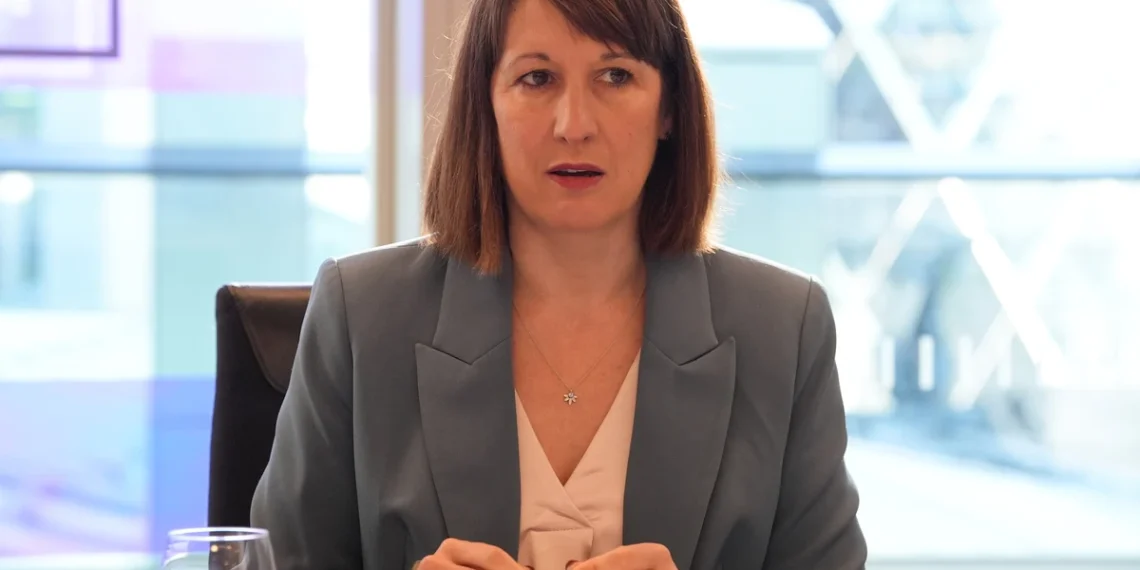Rachel Reeves is being urged by the influential left-of-center thinktank, the Resolution Foundation, to implement significant reforms in the upcoming budget. The proposals, which focus on capital gains tax (CGT), inheritance tax (IHT), and national insurance (NI), could generate more than £20 billion annually for the Treasury.
The government, which is currently grappling with a £22 billion deficit in public finances, is under immense pressure to find new sources of revenue. The Resolution Foundation argues that Reeves could follow a long-standing tradition of raising taxes in the first budget after an election to help address this financial shortfall.
The thinktank’s proposals are designed to satisfy a “triple tax test.” These reforms would make the tax system more efficient, ensure that the wealthier segments of society bear the brunt of the increases, and remain in line with Labour’s 2024 election manifesto.
Rachel Reeves and Prime Minister Keir Starmer cautioned voters that the state of the public finances will necessitate “tough decisions.” According to Treasury insiders, changes to capital gains tax and inheritance tax are top of the list.
“There is widespread speculation about what might be in the first budget of the new parliament, but overall tax rises are a dead cert and time-honored tradition. The Labour manifesto included £10bn of tax rises, but fresh ones will be needed for Rachel Reeves to sufficiently fund public services and investment while still hitting her fiscal rules.”
Adam Corlett, a principal economist at the Resolution Foundation
Even if Reeves were to announce no new revenue-raising measures in the 30 October budget, the thinktank noted that taxes are set to rise anyway. The Chancellor has inherited £24 billion of tax hikes from her predecessor, Jeremy Hunt, none of which have been scrapped.
Budget Constraints
The upcoming budget is also expected to include a scheduled increase in fuel duty, with the Resolution Foundation projecting a rise of more than 6 pence per liter by 2025. The thinktank is urging Reeves to retain this measure but is calling for the planned stamp duty hike, slated for next April, to be scrapped—a move that would cost the Treasury £1.8 billion.
In addition to immediate changes to CGT, IHT, and NI, the thinktank is advocating for long-term reforms to business rates, council tax, and road pricing. These reforms, they argue, could help secure much-needed revenue while modernizing the tax system.
“The chancellor’s self-imposed constraints on not raising income tax, VAT, national insurance, or corporation tax don’t leave her much room for maneuver if she doesn’t want to break manifesto commitments. But there are still several areas of tax she should focus on.”
Adam Corlett

Capital Gains Tax in Focus
According to the thinktank, up to £12 billion a year could be generated by reforming CGT. The current rates, they claim, are unfairly low compared to other forms of income.
The foundation’s proposals include aligning CGT rates on shares with dividend tax rates, taxing property capital gains in the same way as wages, and introducing exit charges when individuals move to another country. It is also advocating applying CGT to assets upon death, and reforms to dividend and rental income tax rates.
However, the Resolution Foundation has suggested balancing these changes with the reintroduction of inflation-indexing. This would allow investors to benefit from a tax-free rate of return, encouraging long-term investments.
The Resolution Foundation estimates that a further £9 billion could be raised by levying national insurance on employers’ pension contributions. Meanwhile, the removal of NI on employees’ pension contributions would leave typical workers saving through auto-enrolment better off, according to the thinktank.
The report also recommends closing loopholes in IHT that allow the wealthiest to avoid paying taxes, a practice that the thinktank says “undermines public trust.” Ending business and agricultural reliefs, as well as including pension pots in IHT calculations, could raise an additional £2 billion annually, according to their analysis.
With the budget looming, Reeves faces a delicate balancing act as she seeks to address the government’s fiscal challenges while adhering to Labour’s manifesto pledges.
READ ALSO: Justice Torkornoo Condemns Rising Unethical Practices Among Lawyers



















